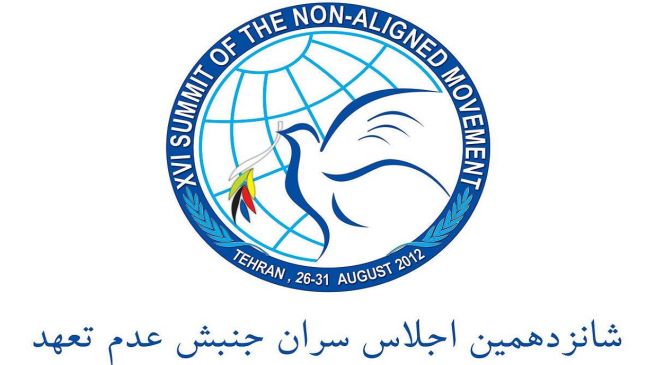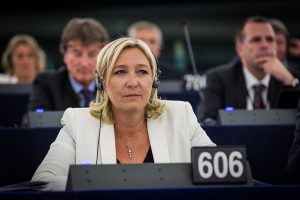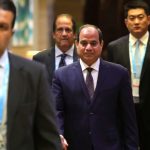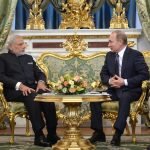It must be considered pure fortuity for the Islamic Republic of Iran that the decision to hold the Nonaligned Movement (NAM) summit in Tehran was made three years ago in Sharm El-Sheikh, Egypt. Although the previous NAM summit took place shortly after Iran’s contested 2009 presidential election, it’s unlikely that anyone could have predicted the significance that the next summit would have for Iran in light of the Obama’s administration’s systematic effort to tighten the sanctions regime and the changes in the region.
The extraordinary effort put into the summit – it will include 5 days of holiday for government workers in Tehran along with 30 extra liters of rationed gasoline, perhaps as an encouragement for people to take a vacation away from the capital city – is intended to showcase Iran’s global role and offer concrete evidence that the United States-led initiative to isolate Iran has failed.
This is not my interpretation. It is a point loudly made by various officials in Iran. For instance, Ezatollah Zarghami, the head of Iran’s radio and television, called the summit “a maneuver against arrogance… giving the message that the nation of Iran can play a role in global equations irrespective of the power of global arrogance.”
The summit is being used to make a visually forceful case that it is not the “global community” that has problems with the Islamic Republic, as repeatedly asserted by US officials, but only a US-led and pressured coalition of countries. And, ironically, the Obama administration is conceding that point by identifying Tehran as a “strange and inappropriate choice” for the summit while trying to dissuade various leaders from attending the meeting.
According to Ali Saeedlou, Iran’s vice president and chair of the secretariat for the summit, 150 delegations, including from 20 international organizations, will participate. Saeedlou said Tehran is prepared to host 7,000 delegates with plans for them to visit “industrial plans, and cultural and historical venues.” India’s delegation alone will include 250 people and will be led by Prime Minister Manmohan Singh.
To be sure, whether this showcasing of Iran’s non-isolation will strengthen Iran’s hand and actually have an impact in denting the escalating US-imposed sanctions regime is an entirely different matter. NAM has already issued several statements in support of Iran’s peaceful nuclear program and there is not much else that it can or will do in Tehran beyond confirming its past positions.
There is potential for a degree of unpleasantness regarding Syria, which will have representation in the summit. According to IRNA, a news agency close to President Mahmoud Ahmadinejad, there is even debate in Iran about whether President Bashar al-Assad should attend. But Assad’s attendance is highly unlikely and chances are that a rather bland statement calling for regional cooperation on resolving the Syrian imbroglio will satisfy the attendees. IRNA has already conceded that inclusion of support for Syria’s sovereignty as a member of NAM in the Summit’s final statement is unlikely.
Probably the most important aspect of the summit is Egyptian president Mohammad Morsi’s decision to attend. But this decision is more about Egypt’s new foreign policy direction than Iran’s non-isolation. The Egyptian president is the current secretary general of the Nonaligned Movement and had he not gone to Iran to hand over NAM’s rotating leadership, his move would have been seen as an insult to NAM as well as a continuation of Egypt’s US-dependent foreign policy under the ousted Hosni Mubarak.
And, if Egypt and Iran do eventually decide to re-establish full diplomatic relations, that decision will not be based on what happens at the summit; it will result after the time and desire for resuming diplomatic ties has finally come in both countries. In Iran, the desire and concerted effort to elevate relations with Egypt has existed since Mohammad Khatami’s presidency and the last vestiges of opposition have vanished with the political change in Egypt. Meanwhile, the exchange of ambassadors between the two countries is effectively the least expensive way for Egypt to announce its new independent foreign policy. Not having ambassadorial relations with Iran when every other Arab country including Saudi Arabia does, simply doesn’t make sense anymore and even the US must understand this.
Ambassadorial-level relations do not necessarily mean friendly relations – as the current state of Iran-Saudi relations show. And the extent to which Cairo will be willing to deepen relations with Tehran will depend on, and in all likelihood be limited by, the balance of power in Egypt’s domestic politics as well as the country’s relations with the US and other regional powers.
Still, depending on how well organized the summit turns out to be, Tehran will try to garner as much publicity as possible for a show staged essentially for an audience that resides outside of Iran.
As to the audience inside Iran, once the summit is over, it will continue to be divided and weighed down with the reality of severe economic challenges and a broken and paranoid political system that still does not know what to do with a large number of disaffected citizens and cannot offer an explanation for why a former prime minister (and his spouse) and a former speaker of the Parliament continue to be incarcerated without charge.
The good news for this audience though is the persistence of its wry sense of humor. Making fun of the five-day holiday that the government is giving Tehranis, a joke is going around that during the past weekend 30 people have drowned in the Caspian Sea and 90 people died in car crashes. The punch line? “If Israel waits, a whole bunch of us will just pass away during the summit holidays.”






Nice analysis.
Good news! It is always better to jaw-jaw than to war-war. Also good to see Egypt and Saudi Arabia sitting down with the Persians and others. For a time in the late 1980’s it looked as if Saddam Husein’s Iraq would take over from Egypt the leadership of the pan-Arab movement. It is bound to happen, somewhere, sooner or later.
I wish the participants the best of luck in enabling greater futures for the majority world